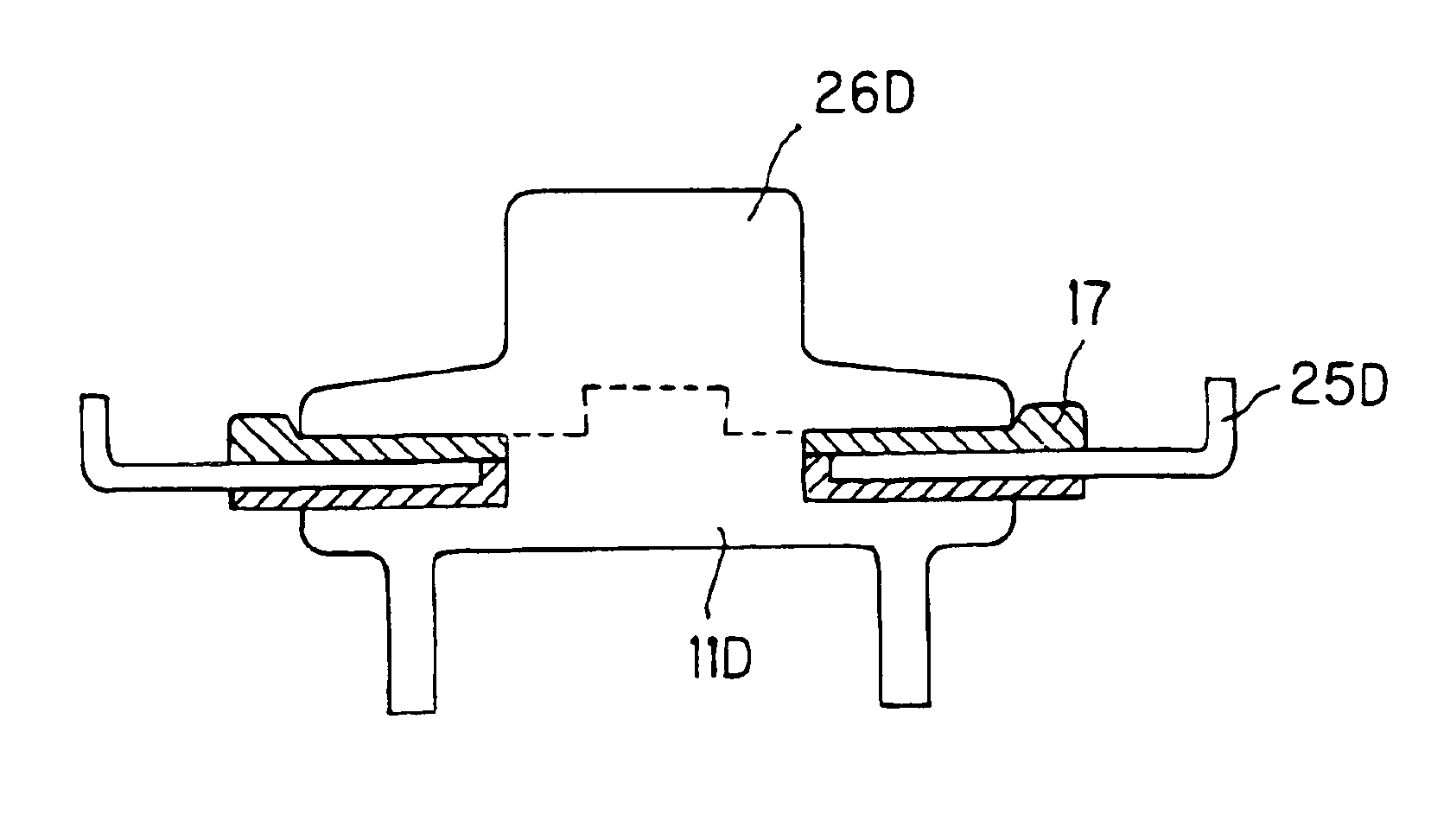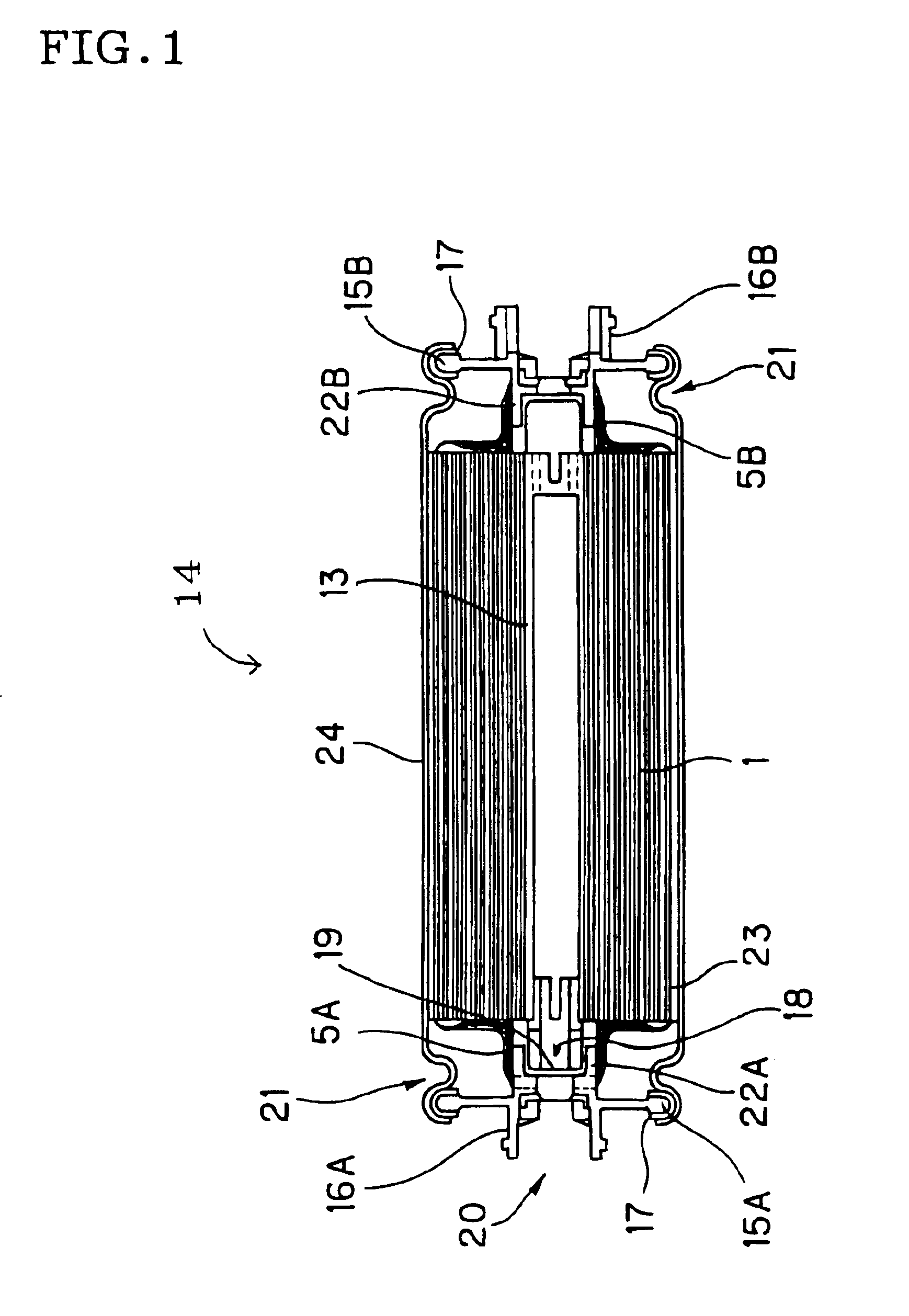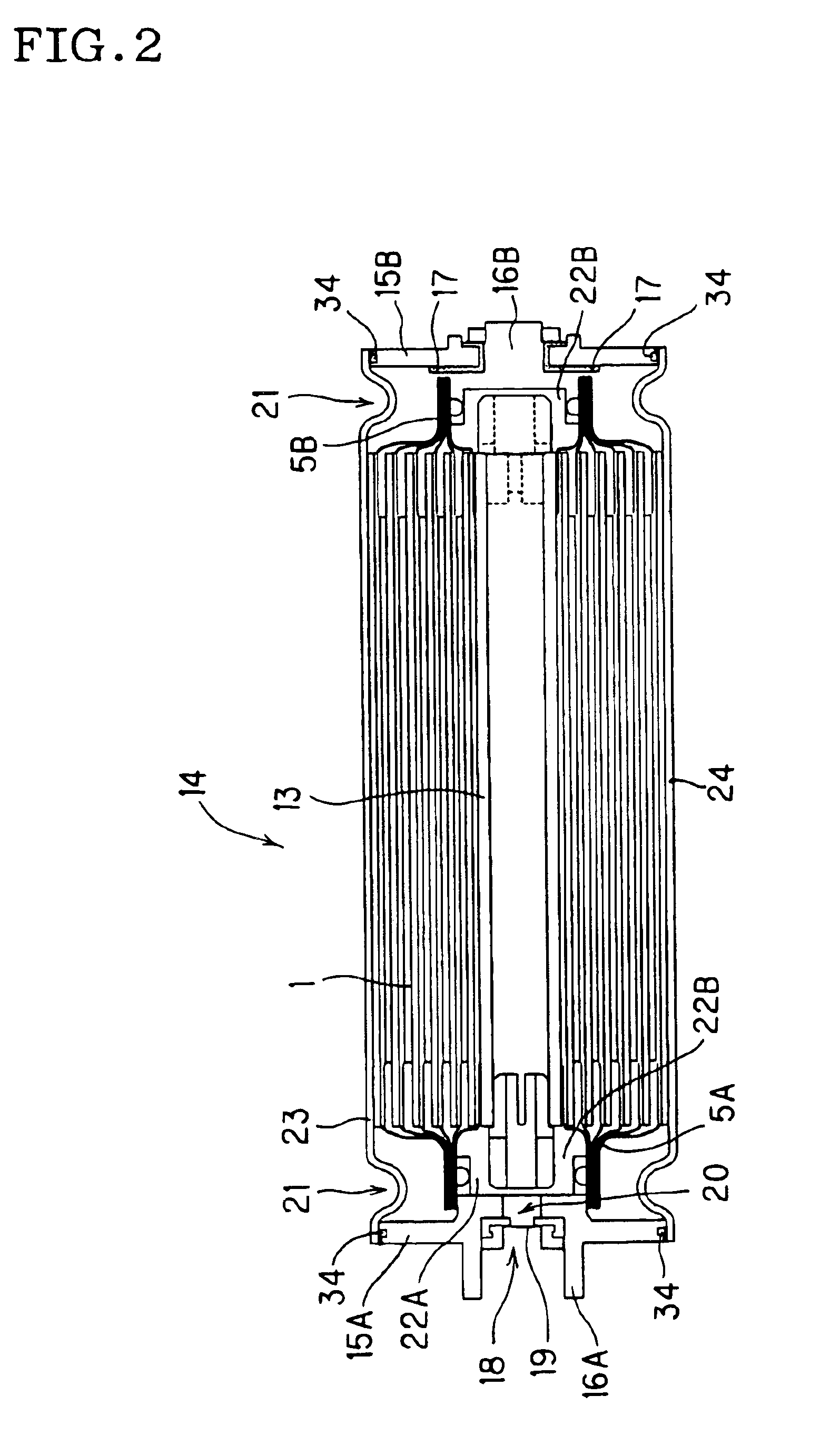Lithium secondary cell and assembly thereof
a secondary cell and lithium technology, applied in the direction of cell components, sustainable manufacturing/processing, wound/folded electrode electrodes, etc., can solve the problems of poor assembly efficiency of a cell, inability to prevent cell explosion, and difficulty in mechanical production, so as to improve assembly efficiency and function. , the effect of improving productivity
- Summary
- Abstract
- Description
- Claims
- Application Information
AI Technical Summary
Benefits of technology
Problems solved by technology
Method used
Image
Examples
Embodiment Construction
A lithium secondary cell of the present invention is roughly divided into first to eighth aspects. Incidentally, the first to third aspects relate to a lithium secondary cell, and the fourth to eighth aspects relate to an assembly of lithium battery cells which comprises a plurality of lithium secondary cells and a plurality of bus bars. The embodiments of the present invention will be described hereinafter for each aspect, but the present invention will not be limited to the following embodiments in any means.
A lithium secondary cell of the first aspect in the present invention is a lithium secondary cell which comprises an internal electrode body including a hollow cylindrical winding core, a positive electrode plate and a negative electrode plate wound around an external peripheral wall of the hollow cylindrical winding core with a separator disposed therebetween, a nonaqueous electrolyte solution impregnating inside the internal electrode body; a cylindrical cell case being open...
PUM
| Property | Measurement | Unit |
|---|---|---|
| temperature | aaaaa | aaaaa |
| pressure | aaaaa | aaaaa |
| current | aaaaa | aaaaa |
Abstract
Description
Claims
Application Information
 Login to View More
Login to View More - R&D
- Intellectual Property
- Life Sciences
- Materials
- Tech Scout
- Unparalleled Data Quality
- Higher Quality Content
- 60% Fewer Hallucinations
Browse by: Latest US Patents, China's latest patents, Technical Efficacy Thesaurus, Application Domain, Technology Topic, Popular Technical Reports.
© 2025 PatSnap. All rights reserved.Legal|Privacy policy|Modern Slavery Act Transparency Statement|Sitemap|About US| Contact US: help@patsnap.com



